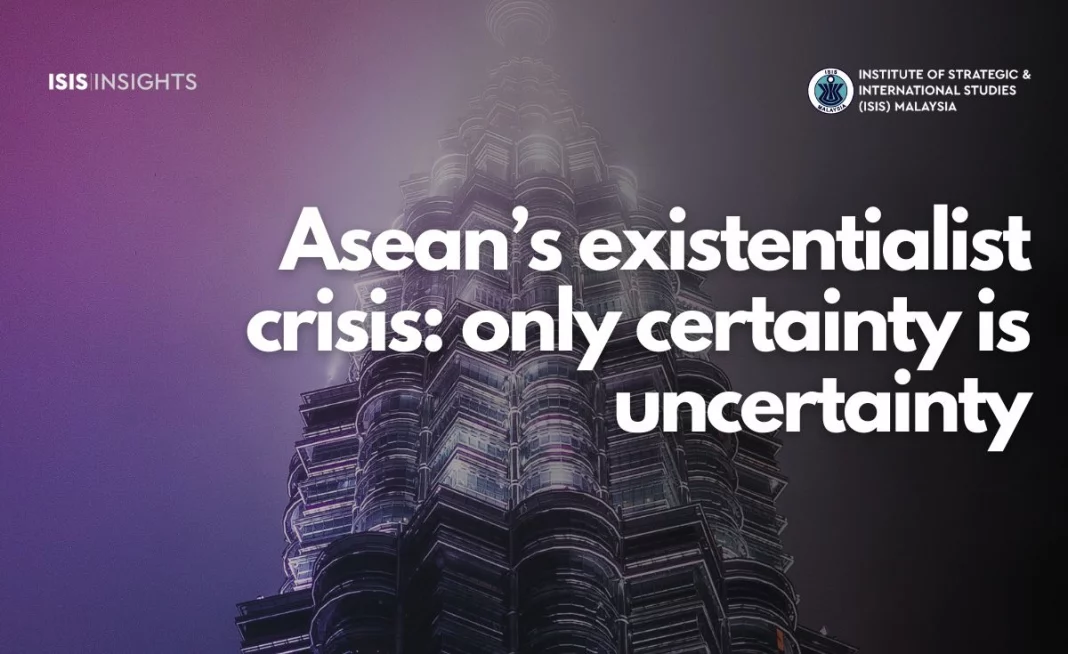Risks abound in Southeast Asia but cohesion, resources can blunt threats
Asean is facing an existentialist crisis whereby its only certainty is that of uncertainty.
There is the risk of a conflict between China and the United States, the increasing adoption of various Indo-Pacific strategies and the simmering South China Sea dispute –such challenges have long beset this region and hamstrung Asean’s desire for centrality.
With bywords like de-risking and friend-shoring now being used in greater frequency among its dialogue partners, the growing risks of major power rivalry to investment and trade and greater bifurcation add burdens to the regional organisation and its member states.
The more cynical observers would argue that the security and strategic options of Southeast Asia have always been limited to the extent to which major powers have allowed.
Thus, major power influence within Asean through its member states is neither new nor surprising. Rather it is something that most practical governments accepted as fait accompli and sought, instead, to carve a niche where leverage could be maximised for national interests.
Commitments to the spirit of democracy and accountability remain precarious and subject to the interpretations and whims of the powers that be. Look no further than Asean’s fractured, uncertain response to the 2021 coup in Myanmar and the ongoing bloody and ruthless crackdown which followed.
These issues and more will be discussed at length in the Asia-Pacific Roundtable in Kuala Lumpur this week. Now in its 36th edition and recognised as one of the region’s key Track 2 strategic-security focused conferences, the roundtable returns for the first time since 2019 for an in-person conference. Prime Minister Datuk Seri Anwar Ibrahim is expected to deliver his first foreign policy focused speech at the 36APR keynote.
The long-term relational networks built and passed on by those within Track 2 gatherings, including officials and policymakers, who participate in a private capacity, have a proven history of aiding official efforts to facilitate dialogue and manage tensions in the Asia-Pacific. Whether it remains so is largely dependent both on the determination and creativity of the participants and the openness and commitment of official actors.
Having such discussions in Malaysia is also important as these dynamics will have a severe impacted on the nation. Our geographic position in the centre of Southeast Asia, straddling some of the world’s busiest and most contested waterways, the Strait of Melaka and the South China Sea respectively, means we are, in fact, dependent on international trade global supply chains for prosperity. This, in turn, ties our strategic risks and options to geostrategic developments in the region and beyond.
The stakes for Malaysia go beyond just national interests. In 2025, Malaysia will assume the Asean chair. It will not be a run-of-the-mill year for the regional organisation as it marks the culmination of Asean’s Vision 2025, and the beginning of the post-2025 vision. Incidentally the former was agreed on during the last Malaysian chairmanship a decade ago. On the latter, a 20-year period has been set, with a midpoint review.
There is an expectation from both within Asean and key dialogue partners for the vision to have clear goals and flexible implementation mechanisms. Among the core issues are on narrowing the development gap within Asean, sustainable models of growth and addressing current and anticipated challenges and trends inside and beyond Southeast Asia.
Accordingly, Malaysia has assumed the responsibility of being a permanent co-chair of the high-level task force shaping the post-2025 vision. We are also expected to develop a plan on strengthening Asean’s capacity and institutional effectiveness, always a contentious subject and one of the association’s great paradoxes.
Member states have longed recognised that the regional organisation needs better cohesion and resources but are loath to allow any development which might impinge on national interests.
Malaysia is thus entrusted with significant responsibilities, much like it was when the Asean Community was formally declared at the 2015 summit in Kuala Lumpur. More inclusive and incisive conversations across a broad spectrum of policy observers and practitioners will no doubt play a crucial supporting role over the next two years and beyond.





